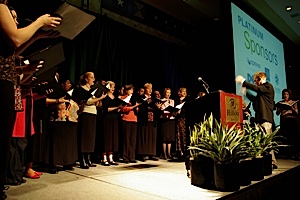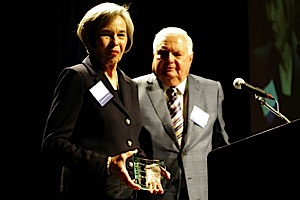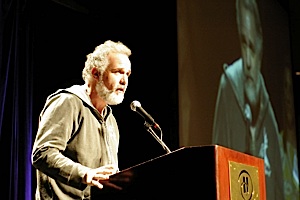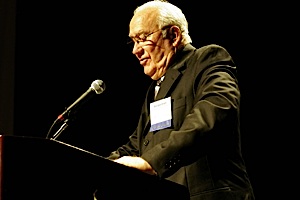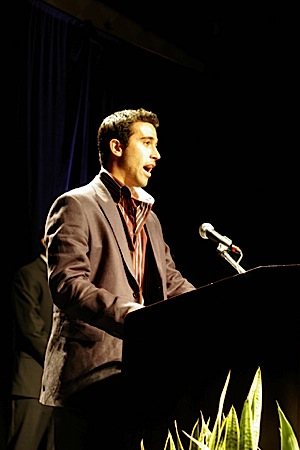What does it mean to be poor in Central Texas? Often it means being hungry. Yes, there are a number of free meal providers for poor people in and around Austin, but just preparing and offering a meal is only part of the equation. Food pantries and other food providers can’t provide the transportation and access hungry people need to get to the food. In the meantime, those who can’t get to food – whether they be busy working moms, young children, elderly people with limited mobility, or disabled people – just stay hungry.
It’s a complicated problem, and one the Basic Needs Coalition (BNC) is trying to solve. According to a 2007 survey BNC, 75% of all people living in poverty in Travis County do not have access to a food provider (like a food pantry or a “soup kitchen.”) Here are more results from the survey:
Demographics of Food Pantry Clients in Travis County:
- 81% of food pantry clients are female.
- 67% live at or below the poverty line.
- 21% work full or part-time.
- 30% are disabled or retired.
(Capital Area Food Bank)
An analysis of food providers for low-income individuals and families by zip code showed:
* 13 of the 24 Travis County zip codes with high poverty levels do not have a food provider, representing 6,946 poor, or 75% of all the people in poverty without access to a food provider.
* Limited evening hours and limited hours on Saturdays may pose a serious challenge for the working poor in accessing food pantries.
* While in general, pantries appear to have an adequate supply of food, there are shortages of dairy products, fresh produce, and fresh or frozen meat, impacting the nutritional health of adults and children in poverty.
* Transportation may pose an obstacle to pantry utilization, especially in rural areas with little to no access to public transportation.
(BNC Travis County Food Provider Survey Results, 2007)
Availability of Prepared Meal Provision in Downtown Austin:
* 9 of 10 meal providers are open to the public.
* Breakfast is provided to the public by at least 1 provider 5 days a week, with an additional day for women. Smaller providers serve breakfast. Weekly breakfasts served by each is between 150 and 225.
* Lunch is covered by at least 2 providers 7 days a week, each serving between 300 and 2,275 weekly meals.
* Dinner is provided 7 days a week, with at least 2 providers for 6 of those days. 2 of the 3 dinner providers serve more than 1,500 weekly dinners.
(BNC Travis County Food Provider Survey Results, 2007)
WHAT YOU CAN DO ABOUT HUNGER IN CENTRAL TEXAS
1. Join Caritas of Austin, the Basic Needs Coalition, and leaders from faith-based organizations on February 13 at the Mexican American Cultural Center for Poverty Roundtable 2008. This educational forum is an opportunity for Austin’s faith community leaders to examine the reality of hunger. Presentations will focus on effective collaborative models for organizations to become actively engaged in addressing food security in the Austin Area. Advanced registration is required and the faith community will be given priority. A light lunch will be provided.
WHAT: Poverty Roundtable 2008
WHO: Representatives from the BNC Food Security Committee and leaders from
Central Texas faith-based organizations.
WHEN: Mexican American Cultural Center, 600 River Street
WHERE: Wednesday, February 13th, 10:00 a.m. to 1:30 p.m.
For more information please contact Tamara Landry Bell at 479-4610, ext. 224 or tlbell@caritasofaustin.org.
2. Let your Federal and State elected officials know what you think about issues regarding poverty. To be connected by telephone to the office of any U.S. House Representative or Senator, call 1-202-224-3121. Or visit the Capitol website to contact any state legislator.
3. Visit the BNC website at which will be updated throughout the year with information and progress on systemic solutions.
4. Contribute in-kind or financial contributions to local BNC Partners. Visit the Basic Needs Coalition website for a complete listing.
5. To volunteer, contact the United Way Capital Area’s Volunteer Center at 2-1-1 or visit Hands on Central Texas for opportunities to help out. Or visit the Basic Needs Coalition’s website for any volunteer opportunities.
About The Basic Needs Coalition: The Basic Needs Coalition is a coalition of nearly 40 public and private social service providers working together to serve people in need in our community. The Coalition is comprised of non-profit organizations, local governmental agencies, faith-based organizations and community advocates. The information above comes from Caritas of Austin.
Filed under: Events, Giving opportunities, Good Causes, Learning opportunities, Poverty/Basic Needs, Volunteering opportunities | Leave a comment »



